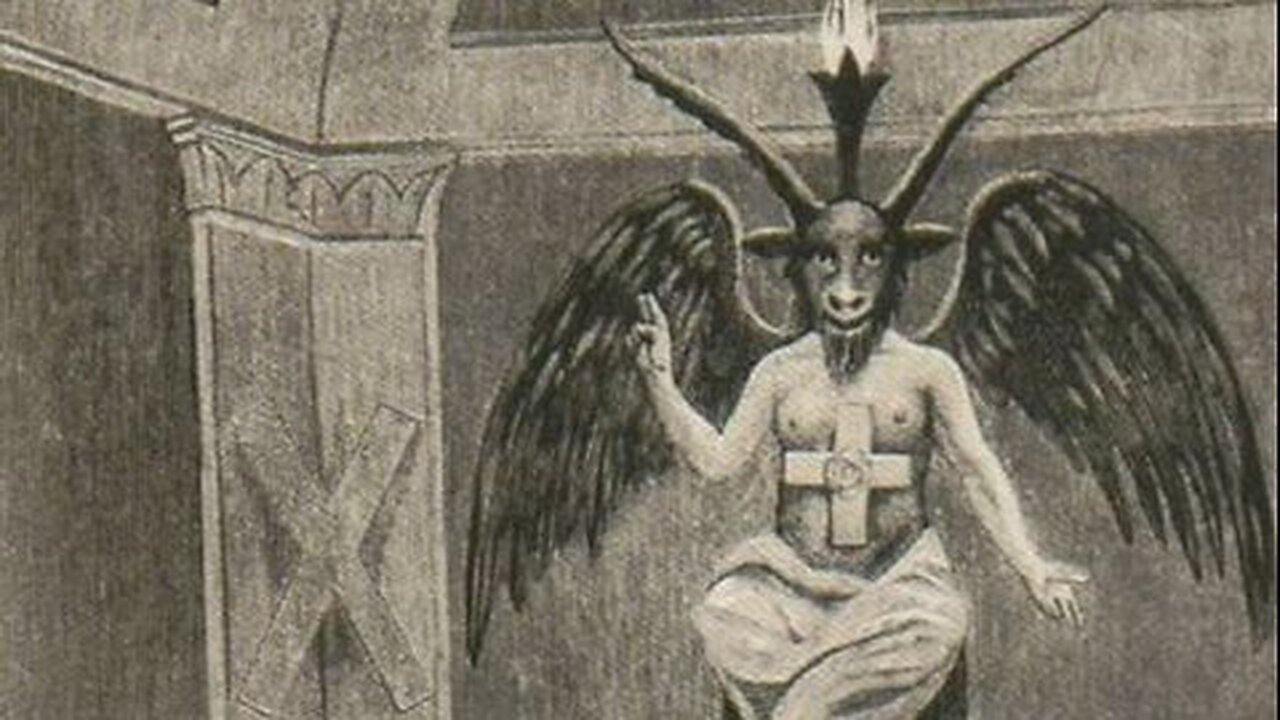Premium Only Content

Devil-Worship in France: or The Question of Lucifer by: Arthur Edward Waite (1896)
This 1896 book by Arthur Edward Waite (1857–1942) investigates the sensational claims of Satanism and “Luciferian” secret societies that captured public attention in late 19th-century France. Waite, an English mystic, scholar, and historian of esotericism, approaches the topic with a critical and analytical eye, aiming to separate fact from rumor in a time of moral panic and media exaggeration. The book explores accusations of devil worship, black masses, and occult fraternities said to exist within the French occult revival, especially those surrounding figures like Abbé Boullan and the infamous anti-clerical press campaigns of the 1890s.
Rather than sensationalizing, Waite treats the subject as a study in misunderstanding, moral fear, and spiritual confusion. He argues that most so-called “Luciferians” were mystics or symbolists whose use of the name “Lucifer” represented the pursuit of enlightenment and spiritual illumination, not literal devil worship. Through his careful dissection of false reports, theological errors, and deliberate fabrications, Waite exposes how superstition and scandal had distorted the genuine esoteric traditions of the West.
Written in his characteristic formal and precise style, Devil-Worship in France reflects Waite’s lifelong effort to reconcile occult symbolism with Christian mysticism and historical truth. It remains an important text for understanding the tension between esoteric spirituality and public perception during the fin de siècle occult revival, offering a balanced critique of both credulous believers and reckless accusers.
About the Author:
Arthur Edward Waite (1857–1942) was a British scholar, mystic, and prolific author known for his deep involvement in esoteric, occult, and Masonic traditions. He was a member of the Hermetic Order of the Golden Dawn - a secret society devoted to the study of magic, alchemy, Kabbalah, and Hermetic philosophy - where he associated with figures such as S.L. MacGregor Mathers and Aleister Crowley. Later, he founded his own branch, the Fellowship of the Rosy Cross, which reflected his Christian mystic leanings and distanced itself from the more magical practices of the Golden Dawn.
Waite was also an active Freemason, initiated in 1901 into the Runymede Lodge No. 2430 under the United Grand Lodge of England. He rose through the degrees of several rites, including the Societas Rosicruciana in Anglia (S.R.I.A.) and the Knights Templar, both of which influenced his later writings. His interest in Rosicrucianism, Gnosticism, and Christian mysticism shaped much of his life's work, as he sought to uncover what he believed to be a hidden spiritual current connecting all true initiatory traditions.
Though often grouped with occultists, Waite preferred the term mystic scholar, believing that genuine esoteric wisdom must lead back to divine truth through Christ. He translated and published numerous texts on alchemy, the Kabbalah, and the Holy Grail, attempting to reconcile occult symbolism with Christian theology. His works include The Book of Black Magic and of Pacts, The Holy Kabbalah, and his most enduring contribution - the Rider-Waite Tarot deck, created with artist Pamela Colman Smith in 1909.
-
 4:57:11
4:57:11
Deus Meum Que Jus
1 day agoDr. Walter Martin Lectures: The Battle for Truth – Exposing the Powers of Darkness
427 -
 6:29:18
6:29:18
SpartakusLIVE
7 hours ago#1 King of Content leaves your Monday UTTERLY MOTIVATED
38.8K1 -
 2:47:40
2:47:40
Barry Cunningham
8 hours agoBREAKING NEWS: WATCH PARTY WITH PRESIDENT TRUMP ON THE LAURA INGRAHAM SHOW (AND MORE NEWS)
157K31 -
 2:36:50
2:36:50
Blabs Games
14 hours agoLet's Get Those 5 Stars! Jurassic World Evolution 3 Playthrough #7
52.1K5 -
 1:03:59
1:03:59
Flyover Conservatives
1 day ago$117K Paywall to Protect School’s Indoctrination? The Education System’s Biggest Secret w/ Nicole Solas | FOC Show
44.8K1 -
 2:31:34
2:31:34
We Like Shooting
17 hours ago $5.11 earnedWe Like Shooting 636 (Gun Podcast)
34.7K2 -
 1:53:24
1:53:24
RiftTV
7 hours agoFBI Director Kash Patel Sues Elijah Schaffer for $5 MILLION?!
62.4K35 -
 3:58:07
3:58:07
DannyStreams
4 hours agoPutting this here until we get noticed
25.8K1 -
 3:59:41
3:59:41
SOLTEKGG
5 hours ago🔴LIVE - Battlefield 6 REDSEC (30+ KILL WORLD RECORD)
23.1K -
 50:26
50:26
BonginoReport
13 hours agoElections Post-Mortem with Mayor Scott Singer - Nightly Scroll w/ Hayley Caronia (Ep.174)
99K24